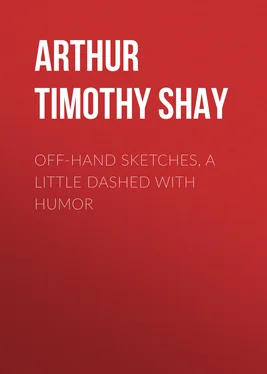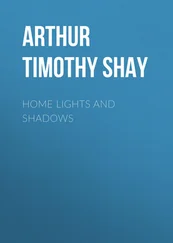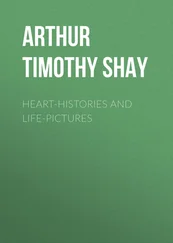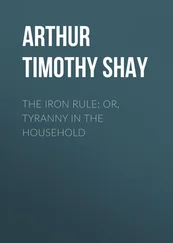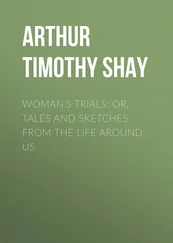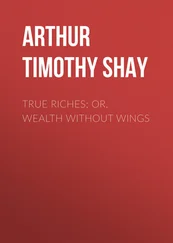Timothy Arthur - Off-Hand Sketches, a Little Dashed with Humor
Здесь есть возможность читать онлайн «Timothy Arthur - Off-Hand Sketches, a Little Dashed with Humor» — ознакомительный отрывок электронной книги совершенно бесплатно, а после прочтения отрывка купить полную версию. В некоторых случаях можно слушать аудио, скачать через торрент в формате fb2 и присутствует краткое содержание. Жанр: foreign_sf, literature_19, foreign_antique, foreign_prose, на английском языке. Описание произведения, (предисловие) а так же отзывы посетителей доступны на портале библиотеки ЛибКат.
- Название:Off-Hand Sketches, a Little Dashed with Humor
- Автор:
- Жанр:
- Год:неизвестен
- ISBN:нет данных
- Рейтинг книги:3 / 5. Голосов: 1
-
Избранное:Добавить в избранное
- Отзывы:
-
Ваша оценка:
- 60
- 1
- 2
- 3
- 4
- 5
Off-Hand Sketches, a Little Dashed with Humor: краткое содержание, описание и аннотация
Предлагаем к чтению аннотацию, описание, краткое содержание или предисловие (зависит от того, что написал сам автор книги «Off-Hand Sketches, a Little Dashed with Humor»). Если вы не нашли необходимую информацию о книге — напишите в комментариях, мы постараемся отыскать её.
Off-Hand Sketches, a Little Dashed with Humor — читать онлайн ознакомительный отрывок
Ниже представлен текст книги, разбитый по страницам. Система сохранения места последней прочитанной страницы, позволяет с удобством читать онлайн бесплатно книгу «Off-Hand Sketches, a Little Dashed with Humor», без необходимости каждый раз заново искать на чём Вы остановились. Поставьте закладку, и сможете в любой момент перейти на страницу, на которой закончили чтение.
Интервал:
Закладка:
"I can't find any paper for you, to-day. They have made a mistake in not mailing it this week."
"No," replied Ashburn. "I have stopped it."
"Indeed! The Post is an excellent paper. What other one do you intend to take?"
"I shall not take any newspaper this year," replied Ashburn.
"Not take a newspaper, Mr. Ashburn!" said the postmaster, with a look and in a tone of surprise.
"No. I must retrench. I must cut off all superfluous expenses. And I believe I can do without a newspaper as well as any thing else. It's a mere luxury; though a very pleasant one, I own, but still dispensable."
"Not a luxury, but a necessary, I say, and indispensable," returned the postmaster. "I don't know what I wouldn't rather do without than a newspaper. What in the world are Phoebe, and Jane, and Margaret going to do?"
"They will have to do without. There is no help for it."
"If they don't raise a storm about your ears that you will be glad to allay, even at the cost of half a dozen newspapers, I am mistaken," said the postmaster, laughing.
Ashburn replied, as he turned to walk away, that he thought he could face all storms of that kind without flinching.
"Give me the 'Post,' papa," said Margaret, running to the door to meet her father when she saw him coming.
"I haven't got it," replied Mr. Ashburn, feeling rather uncomfortable.
"Why? Hasn't it come?"
"No; is hasn't come."
Margaret looked very much disappointed.
"It has never missed before," she said, looking earnestly at her father.
No suspicion of the truth was in her mind; but, to the eyes of her father, her countenance was full of suspicion. Still, he had not the courage to confess what he had done.
"The 'Post' hasn't come!" he heard Margaret say to her sisters, a few minutes afterwards, and their expressions of disappointment fell rebukingly upon his ears.
It seemed to Mr. Ashburn that he heard of little else, while in the house, during the whole day, but the failure of the newspaper. When night came, even he, as he sat with nothing to do but think about the low price of wheat for an hour before bedtime, missed his old friend with the welcome face, that had so often amused, instructed, and interested him.
On Monday morning the girls were very urgent for their father to ride over to the post-office and see if the paper hadn't come; but, of course, the farmer was "too busy" for that. On Tuesday and Wednesday, the same excuse was made. On Thursday, Margaret asked a neighbour, who was going by the office, to call and get the newspaper for them. Towards evening, Mr Markland, the neighbour, was seen riding down the road, and Margaret and Jane ran down eagerly to the gate for the newspaper.
"Did you get the paper for us?" asked Margaret, showing two smiling rows of milk-white teeth, while her eyes danced with anticipated pleasure.
Mr. Markland shook his head.
"Why?" asked both the girls at once.
"The postmaster says it has been stopped."
"Stopped!" How changed were their faces and tones of voice.
"Yes. He says your father directed it to be stopped."
"That must be a mistake," said Margaret. "He would have told us."
Mr. Markland rode on, and the girls ran back into the house.
"Father, the postmaster says you have stopped the newspaper!" exclaimed his daughters, breaking in upon Mr. Ashburn's no very pleasant reflections on the low price of wheat, and the difference in the return he would receive at ninety cents a bushel to what he would have realized at the last year's price of a dollar twenty-five.
"It's true," he replied, trenching himself behind a firm, decided manner.
"But why did you stop it, father?" inquired the girls.
"Because I can't afford to take it. It's as much, as I shall be able to do to get you enough to eat and wear this year."
Mr. Ashburn's manner was decided, and his voice had a repelling tone.
Margaret and Phoebe could say no more; but they did not leave their father's presence without giving his eyes the benefit of seeing a free gush of tears. It would be doing injustice to Mr. Ashburn's state of mind to say that he felt very comfortable, or had done so, since stopping the "Post," an act for which he had sundry times more than half repented. But, as it had been done, he could not think of recalling it.
Very sober were the faces that surrounded the supper-table that evening; and but few words were spoken. Mr. Ashburn felt oppressed, and also fretted to think that his daughters should make both themselves and him unhappy about the trifle of a newspaper, when he had such serious troubles to bear.
On the next Saturday, as Mr. Ashburn was walking over his farm, he saw a man sitting on one of his fences, dressed in a jockey-cap, and wearing a short hunting-coat. He had a rifle over his shoulder, and carried a powder-flask, shot and bird bags. In fact, he was a fully equipped sportsman, a somewhat rara avis in those parts.
"What's this lazy fellow doing here?" said Ashburn, to himself. "I wonder where he comes from?"
"Good morning, neighbour," spoke out the stranger, in a familiar way, as soon as the farmer came within speaking distance. "Is there any good game about here? Any wild-turkeys, or pheasants?"
"There are plenty of squirrels," returned Ashburn, a little sarcastically, "and the woods are full of robbins."
"Squirrels make a first-rate pie. But I needn't tell you that, my friend. Every farmer knows the taste of squirrels," said the sportsman with great good-humour. "Still, I want to try my hand at a wild-turkey. I've come off here into the country to have a crack at game better worth the shooting than we get in the neighbourhood of P—."
"You're from P—, then?" said the farmer.
"Yes, I live in P—."
"When did you leave there?"
"Four or five weeks ago."
"Then you don't know what wheat is selling for now?"
"Wheat? No. I think it was ninety-five or a dollar, I don't remember which, when I left."
"Ninety is all it is selling for here."
"Ninety! I should like to buy some at that."
"I have no doubt you can be accommodated," replied the farmer.
"That is exceedingly low for wheat. If it wasn't for having a week's sport among your wild-turkeys, and the hope of being able to kill a deer, I'd stop and buy up a lot of wheat on speculation."
"I'll sell you five hundred bushels at ninety-two," said the farmer, half-hoping that this green customer might be tempted to buy at this advance upon the regular rate.
"Will you?" interrogated the stranger.
"Yes."
"I'm half-tempted to take you up. I really believe I—no!—I must knock over some wild-turkeys first. It won't do to come this far without bagging rarer game than wheat. I believe I must decline, friend."
"What would you say to ninety-one?" The farmer had heard a rumour, a day or two before, of a fall of two or three cents in wheat, and if he could get off five hundred bushels upon this sportsman, who had let the breast of his coat fly open far enough to give a glimpse of a large, thick pocketbook, at ninety-one, it would be quite a desirable operation.
"Ninety-one—ninety-one," said the stranger, to himself. "That is a temptation! I can turn a penny on that. But the wild-turkeys; I must have a crack at a wild-turkey or a deer. I think, friend," he added, speaking louder, "that I will have some sport in these parts for a few days first. Then, maybe, I'll buy up a few thousand bushels of wheat, if the prices haven't gone up."
"I shouldn't wonder if prices advanced a little," said the farmer.
"Wouldn't you?" And the stranger looked into the farmer's face with a very innocent expression.
"It can't go much lower; if there should be any change, it will doubtless be an improvement."
"How much wheat have you?" asked the sportsman.
Читать дальшеИнтервал:
Закладка:
Похожие книги на «Off-Hand Sketches, a Little Dashed with Humor»
Представляем Вашему вниманию похожие книги на «Off-Hand Sketches, a Little Dashed with Humor» списком для выбора. Мы отобрали схожую по названию и смыслу литературу в надежде предоставить читателям больше вариантов отыскать новые, интересные, ещё непрочитанные произведения.
Обсуждение, отзывы о книге «Off-Hand Sketches, a Little Dashed with Humor» и просто собственные мнения читателей. Оставьте ваши комментарии, напишите, что Вы думаете о произведении, его смысле или главных героях. Укажите что конкретно понравилось, а что нет, и почему Вы так считаете.
